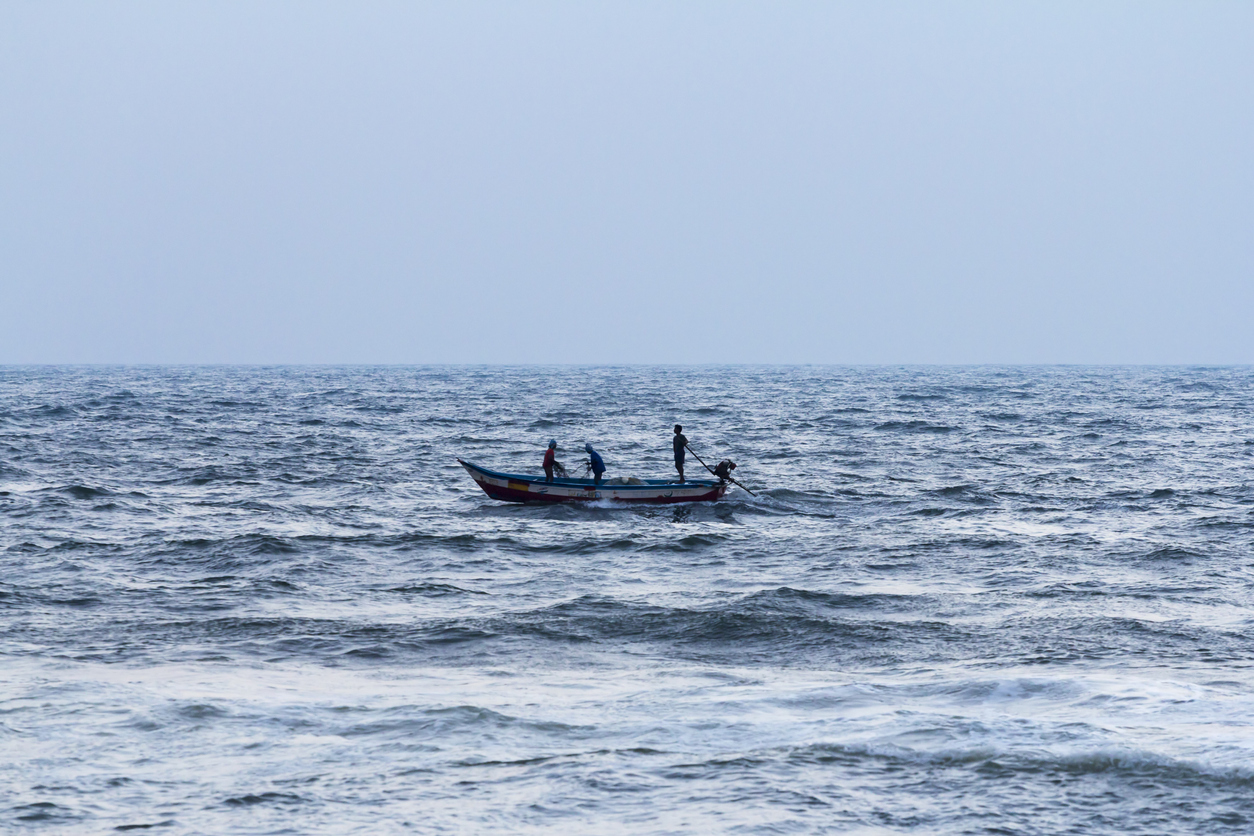
TN fishers 'see' foreign vessel in Indian waters amid ban, security forces deny it

Amid the 60-day fishing ban in Tamil Nadu that began on April 15, fishermen in Chennai have claimed that they had seen a foreign fishing vessel in Indian waters. However, both the Indian Coast Guard (ICG) and the State’s Coastal Security Group have denied the incident.
With a coastline of about 1,076 km, Tamil Nadu has 41,412 sq km of continental shelf area and 1.9 lakh sq km of Exclusive Economic Zone (EEZ). These are the source of livelihood for more than 10 lakh fishers in 13 coastal districts of the state, which produces around 5 lakh tonnes of fish annually.
To facilitate the fish breeding, state governments had been imposing a ban on fishing by mechanised boats. It was 45 days until 2017 and was extended to 60 days. Along the Bay of Bengal, the ban comes into effect on April 15 and continues until June 15. Along the Arabian Sea, it is between June and August.
Related News: Two journalists test positive for coronavirus in Chennai
Due to the nationwide lockdown, the government allowed traditional fishers — who go fishing on a small scale — to venture out to sea on Sundays and Wednesdays. To discuss the issue over the lockdown and fishing ban, fishermen from Nochi Nagar near the Marina beach held a meeting on April 17.
That was when the fishermen had spotted the foreign vessel around 27 nautical miles off the coast, says Bharathi, president of the South Indian Fishermen Welfare Association. “Fishermen know the difference between fishing vessels, tourist ships, cargo ships and research vessels,” he says.
There are only two institutes with research vessels in Tamil Nadu — the National Institute of Ocean Technology (NIOT) and the Central Marine Fisheries Research Institute (CMFRI), Bharathi says.
Related News: How bats thrived in the dark corners of Tirunelveli temples in TN
Though the fishermen spotted the foreign vessel, they had no phones to track the location of the vessel or click a picture of it, he alleges. “Many fishermen don’t have a phone with GPS facility. Even if they have smartphones, they leave them at their homes as they may accidentally drop them in the sea.”
The association said it had raised this issue with the State Fisheries Department and the Coast Guard. However, the Coast Guard and the State’s Coastal Security Group denied any such incident.
“We have not received any such complaints from fishermen,” an official from the Coastal Security Group tells The Federal. “We were not aware of any such incident,” said the office of the Coast Guard (East) in Chennai.
However, Bharathi claims that the security forces had sought evidence from the fishermen for the intrusion of the foreign vessel in Indian waters. “The coastal forces have surveillance technology and they must check if any foreign vessel enters the Indian waters. If they ask the poor fishermen for proof, what can they do,” said Bharathi.
Related News: Tamil Nadu bans preparation of gruel in mosques this Ramzan
But State Fisheries Minister D Jayakumar says the claim of the fishermen is false. “India is a powerful country and we have modern surveillance technology. The coastal forces do round-the-clock patrol. So, no foreign vessel can escape from our radars. The allegation of the fishermen is baseless” he tells The Federal.
Usually, State governments impose the fishing ban in their territorial waters of up to 12 nautical miles. From 12 to 200 nautical miles, it is the EEZ, which comes under the Centre. Beyond that, the waters are not exclusive to any country.
Earlier foreign vessels had been fishing in the EEZ with Letter of Permission (LOP), says M Ilango, the chairperson of the National Fisherfolk Forum. Due to the constant struggle of the fishing community, foreign vessels are not being granted LOP since 2017, he says, wondering how a vessel could have entered Indian waters without LOP.

